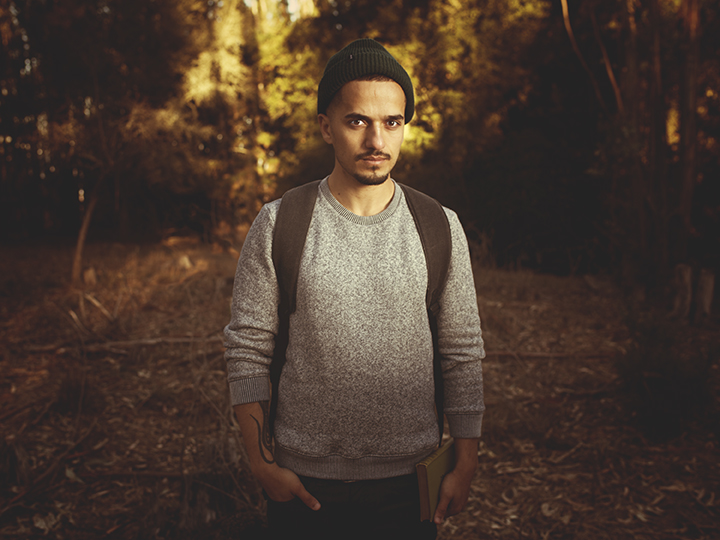
Mohammad Gorjestani is an Iranian-American filmmaker based in San Francisco who has been named one of the “25 New Faces of Independent Film” by Filmmaker Magazine and whose film Refuge has been getting quite a bit of attention. Featured at the Tribeca Film Festival and as an episode of the PBS series, Futurestates, Refuge is an old-fashioned science fiction morality play that focuses on the human side of cyber warfare, trust, and the difficult choices that people are given and told to be grateful for. In it an Iranian woman, Sonia played by Nikohl Boosheri, is offered a chance to get a green card if she carries a genetically modified embryo to term. If she doesn’t agree to this, she will be deported and most likely imprisoned. I spoke with Gorjestani at the SOMA office to discuss his work and the odd phenomena of life imitating art.
So you were born in Iran but grew up in San Jose and have been working in film here in California. What are the differences you’ve noticed between the independent movie circuit in the U.S. and Iranian cinema?
Western cinema in general seems to deal more with the idea of spectacle. Often times they’re depicting grand stories that are harder to relate to. I think if a Hollywood studio had done Refuge, the story of the people involved wouldn’t be the focus. More likely it would be centered around top political figures or the machinations of the system. Iranian cinema has a smaller scope; there are more portraits of characters and the characters are closer to real people, like Sonia in Refuge. Also in Iranian movies, you have to be more careful about what you’re saying. There are some things you can’t show as explicitly, even things such as a couple in bed. You need to rely more on allegories and metaphors.
“Refuge” deals with cyber warfare but also oppression and fear tactics used against a population. It seems that both sides are guilty of this in the film. Have you experienced any censorship with a work this volatile?
Censorship of my work, no not really but I wouldn’t feel comfortable going back to Iran after making this movie. (Laughs) I really wanted to think about the exploitation of immigrants and take that to the next level. There’s nothing more exploitative than controlling a woman’s body. Also, putting someone in a position where they really don’t have a choice. Or when they’re told they have a choice but it’s very much a rock and a hard place so calling it a choice is a not really accurate. Yes, she can refuse but there will be serious ramifications if she does. In many ways, Sonia enters a primitive survival mode and she has to look at the choice as a life-or-death matter.
Hardly a choice.
Absolutely. It’s not a choice; it’s more of a deal with the devil, so to speak. There’s really no good option for her.
On the note of exploitation, I really felt like “Refuge” was a feminist movie since the main character is not only a woman but a woman who is now giving up the autonomy of her body. Was that something you were going for?
It’s incredible to me how the moment political rhetoric is involved, people turn off the part of their brain that says, ‘maybe I should question this?’ If a man in a nice suit is telling a woman to take her clothes off, not even just telling but threatening her…it’s just the absolute extreme of being exploited. Like cyber warfare, which exists sort of below the surface and you don’t see the damage until after it’s done, this is the buttoned-up bureaucratic side of exploitation. It’s back to the whole concept of making a deal with the devil; there’s really no way to win.
How has the reception been so far?
The audiences have been positive. They’re fascinated since, in many ways, it’s a culture they’re not familiar with. Funny that you should ask about that though, because we are actually going on a tour of the Midwest with the film.
You’re kidding me. The Midwest? How do you think it’s going to do?
To say I’m not a little nervous would be untrue but I’m also excited and optimistic. We’re doing eight cities in ten days. It might have more of an impact there and it will at least get people talking.
Text by Veronica Dolginko
Photography by Matthew Furuta

